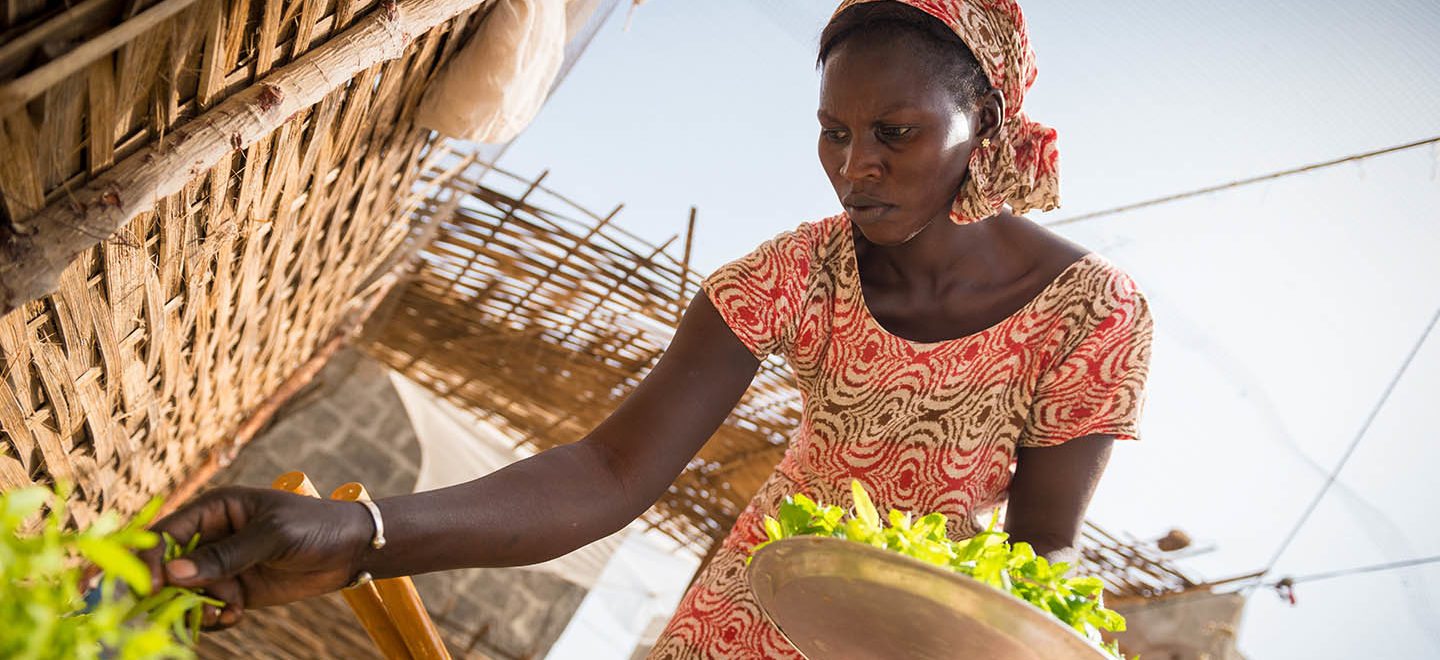Just a few weeks ago, I joined more than 700 delegates at the UN Food and Agriculture Organization’s 2nd International Symposium on Agroecology. After three intensive days of work and negotiations, we reached some encouraging conclusions.
FAO Director José Graziano da Silva emphasized:
It’s time to scale up the implementation of agroecology. We have succeeded in moving from talking about what is agroecology, to now having specific program targets to be achieved in the next few years, and strong support from civil society and those governments who have worked hard to make this symposium a success.
I must admit that this symposium was much more positive than expected. Asserting the value and the potential of agroecology in the “Cathedral of the Green Revolution” is a huge step forward. Sure, certain moments brought me to the sad reality that all those talks on positive examples, best practices, and evidence-based findings around agroecology were not enough to induce governments to make the changes we need to protect people’s lives and the climate. One such moment was when the governments in the room rejected Director Graziano’s proposal to conclude the symposium with a joint declaration that would have strengthened the political outcome of the symposium.
However, a big step forward has been taken. The millions of small scale farmers, women, indigenous people, pastoralists and fisherfolks who practice agroecology daily won’t stop what they’re doing just because it wasn’t in the FAO’s final declaration! Agroecology builds on the social construction of producers’ movements, and it will continue because it is their life.
What struck me most during the symposium was the conversation about what agroecology is and what it’s not. Among the civil society organizations at the symposium, we discussed a lot about the risks of the private sector coopting agroecology. One of the biggest risks the agroecological movement is facing is that corporations are getting away with business as usual just by slapping a “green label” on their products. Many people are attracted to “green and sustainable” products lining the shelves at supermarkets and may even think that a positive change is taking place. In reality, companies are continuing to produce on a massive, unsustainable scale.
Confronted with this risk, it is crucial to understand the following:
Agroecology is NOT greenwashed agribusiness
Agroecology can’t coexist with industrial agriculture, which relies on large chunks of land cultivated with massive machines and huge use of inputs like chemical pesticides. Agroecology is defined as a science, a practice and a social movement, to underline the interconnection between the economic, social, and human components. Agroecology doesn’t exist without social organizations. Scaling up agroecology is not a few big agribusinesses contracting small agroecological producers to source agroecological products for major retailers. Agroecology implies having more and more small-scale producers supported with public policies and adequate funding to adopt agroecology. As one of my colleagues at La Via Campesina said, “False agroecology is greenwashing the corporate takeover. Real peasant agroecology can be brought to a larger scale only through large movements practicing agroecology.”
Agroecology is a way of life of our peoples, in harmony with the language of Nature. It is a paradigm shift in the social, political, productive and economic relations in our territories, to transform the way we produce and consume food and to restore a socio-cultural reality devastated by industrial food production. Agroecology generates local knowledge, builds social justice, promotes identity and culture and strengthens the economic viability of rural and urban areas.
– CSO final Declaration at the FAO 2nd International Symposium
Agroecology is NOT Climate Smart Agriculture or sustainable intensification
Agroecology can’t be associated with Climate Smart Agriculture because agroecology excludes the use of external inputs, chemical fertilizers and pesticides. Government must stop playing around this vagueness. Not only should they put more resources into agroecology, but they should also stop placing resources into subsidized input distribution programs or adopting seed laws that criminalize farmers’ rights to save, grow and exchange their seeds.
Agroecology is NOT just production
Agroecology is not just a technical fix for the production of food. It encompasses the entire series of interlinked activities that connect food production to food consumption. Providing healthy and safe food to consumers, re-establishing direct connections between producers and consumers, and creating short value chains that create market opportunities for agroecological products – this is agroecology.
Agroecology is NOT biotechnological innovations
Men and women farmers, family farmers, and indigenous people are the most important innovators in agroecology. They innovate on their farms, as seen in Senegal, where we’re working with women farmers to adapt to the impacts of climate change. To deal with rising sea levels and more frequent floods, the women came up with a system of raised table gardens that stand high above the ground. Since then the women have been able to grow a variety of vegetables year-round. They say their families are healthier now that there are enough vegetables to go around.
The creation of knowledge relies on a form of information exchange called the dialogo de saberes that affirms different ways of thinking and seeks to de-colonize the quest for knowledge. Innovation should be conceived as a social and collective process where people are at the center of knowledge generation. Agroecological innovations should be climate resilient, people-centered and women-led. Innovation of this kind leads to local alternatives that are based on indigenous and traditional knowledge and on the practices of community men and women, tested and proven over time. When combined appropriately with scientific knowledge and modern technology, this knowledge truly enhances climate resilience and sustainability. The challenges will require combining research and traditional knowledge, stronger theoretical knowledge, and field testing by farmers to inform it. Farmers need space, time and resources to experiment, test and validate the small innovations that they are making to bring about positive change to their farming systems. This requires adequate funding for public participatory research on agroecology, to support farmers and their innovations.
Agroecology is about rights, feminism, and food sovereignty
This requires a radical shift towards a food system that respects and protects the rights of men and women producers. Ultimately, we need a food system that respects the rights of all us who care about our health and our planet.

